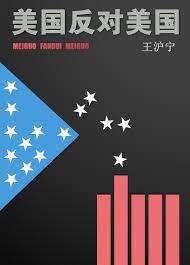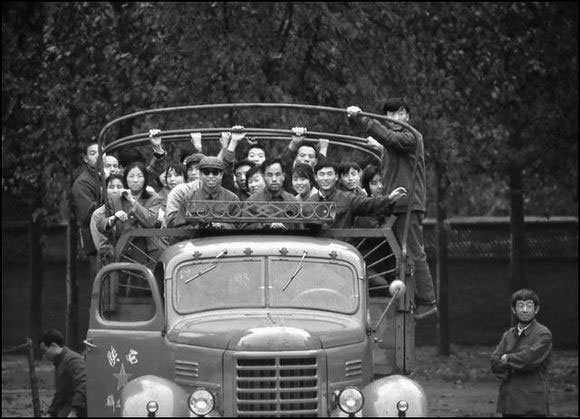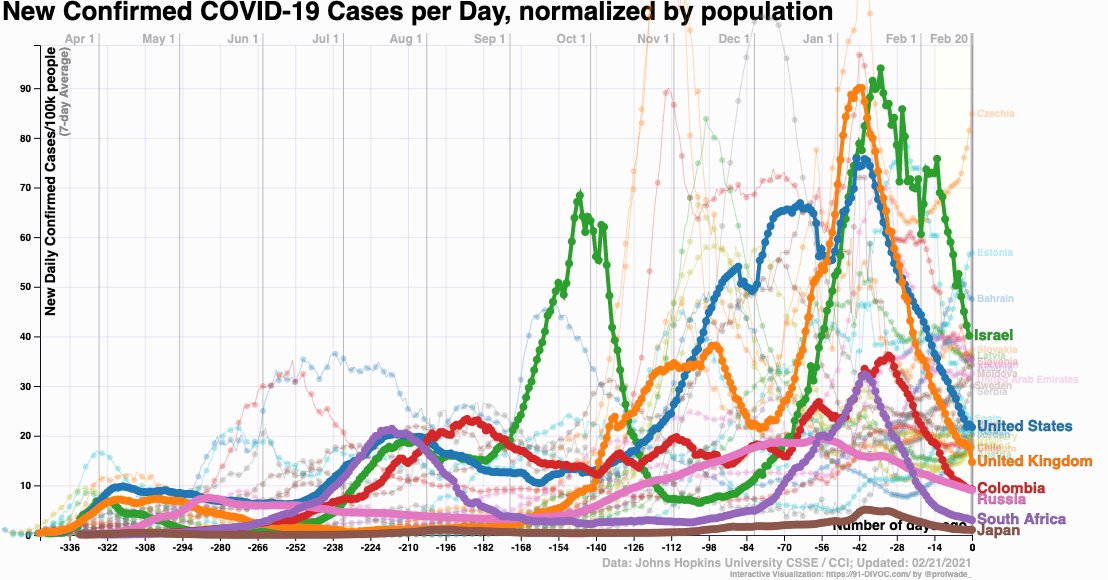This is a rather fascinating excerpt from Wang Huning's book. In it he makes the argument that in the United States (and perhaps, by extension, any modern society), "Sometimes it is not man that masters technology, but technology that masters man."
A 🧵
A 🧵
https://twitter.com/CSTranslate/status/1755994652245635080
Wang Huning is an important guy. He is the 4th man in the Politburo. He has served as the chief ideologue for three General Secretaries in a row. Many people have written about this.
For example, here: palladiummag.com/2021/10/11/the…
and also here washingtonpost.com/news/theworldp…
Long before Wang had such fancy he titles he was a young political scientist eager to understand the world outside of China. In 1989 he was invited to America. He spent a year there, interviewing everyone from farmers to congressmen.
Then he wrote a book.
Then he wrote a book.

@CSTranslate has published translations of several excerpts from this book. The common theme in these translations is Wang's analysis of modern technology.
strategictranslation.org/articles/ameri…
strategictranslation.org/articles/ameri…
@CSTranslate In many ways, American science and technology are the central theme of the entire book. He had come to America from a poor and underdeveloped country that had long been in isolation.






@CSTranslate One of his first stops in the United States was Manhattan. He was amazed what he found there.




@CSTranslate Again and again Wang asks: how did the United States become this way? How did it become so wealthy, powerful, and so technologically advanced?
How could China do likewise?
How could China do likewise?
@CSTranslate That is the animating question behind Wang's book. In the excerpts translated thus far we see him try to identify which aspects of American culture and politics are responsible for its technological success.
(My summary here: )scholars-stage.org/wang-huning-an…
(My summary here: )scholars-stage.org/wang-huning-an…
@CSTranslate In this new excerpt he turns the question around. Instead of asking how American society transformed modern technology, he asks how modern technology has transformed American society.
His conclusions are dark and sobering.
His conclusions are dark and sobering.
@CSTranslate Wang's argument begins with an observation: Americans' strongest faith is in science and technology. There is nothing they think cannot be accomplished through the power of technology.
Contrast this with Tocqueville's observation on American faith from a century previous: "In the United States.... there is nothing the human will despairs of attaining through the free action of the combined power of individuals."



@CSTranslate But technology, as Wang sees it, does not help individuals combine. "Techno-scientific development fragments society into small, interconnected nodes, with each person occupying their own node [in the chain]."




@CSTranslate The argument in the excerpts screen-shotted above are all materialist: they have to do with the nature of labor and management in advanced manufacturing. But for Wang there is an ideological element to this as well.
@CSTranslate Namely, that Americans have an ideological faith in science and technology. Science is truth, and the imperatives of the truth must be followed. Implementing a new technology is not a question of politics or a question of values, but technical efficiency.
@CSTranslate Because Americans have such unquestioning faith, Wang concludes that in modern society "it is immensely more difficult for people to obey political and legal commands than it is for them to obey techno-scientific imperatives."




@CSTranslate Wang's feelings about this are ambivalent. On the one hand, he is eager to find ways to maintain order that do not rely on coercion or constant top-down control, errors he associated with the excesses of Maoist China.
@CSTranslate Thus when he writes that "To a great degree, American society is managed by a technological order. Man is more obedient to the technological than he is to the political" he is partially exploring a program for managing Chinese society.
But it is a program with problems.
But it is a program with problems.
@CSTranslate The biggest problem with technological management, as Wang sees it, is that it causes intellectual confusion. When people are in the habit of following technological imperatives they start to forget that technology was *created* by man as a tool for his own use.
"With great scientific and technological development," Wang writes, "also comes an illusion: it seems that the agent ultimately solving a difficult problem is not human; rather, science and technology become the ultimate power while man becomes their slave." 

It is important that Wang calls this an "illusion." He also calls it a "misdirection." Some human beings are in control, out there, somewhere, whether they admit this to themselves or not.
But faith in technical expertise and scientific knowledge obscures what decision makers are doing and why they are doing it--even, sometimes, from themselves. Political calculations or value judgements are veiled, treated like matters of mere technical implementation.
This point should be intuitive to anyone who experienced the COVID policy debates. We were reminded then that for complex systems scientific knowledge is only an uncertain guide, at its best only capable of telling us what "is", not what we "ought" to do in response. 

Wang was awestruck by American spacecraft. He mentions them repeatedly throughout his book, usually as example of American ingenuity and creativity.
But this chapter is different. Here the space shuttle is seen as an example of "misdirection" [误导].
But this chapter is different. Here the space shuttle is seen as an example of "misdirection" [误导].
On its face, space exploration seems to be about scientific discovery for its own sake. Dig a little deeper and you find other motivations: geopolitics, bureaucratic power games, presidential opinion polling all play a less acknowledged role.




Wang does not make this point as explicitly as some others have, but something similar can be said for manned spaceflight as a whole. 

From a scientific perspective most of the experiments astronauts conduct in space would be more efficiently conducted by machines. Science is not the reason we put lives humans up there.
But it is often the reason we *say* we do.
But it is often the reason we *say* we do.

For Wang this is a characteristic American--and thus modern--problem. We do not want to confront the actual questions of values or politics; we *want* engineering solutions to societal problems.
There are two difficulties with this. The 1st is that not all problems have engineering solutions. You can make computerized wheelchair for a cripple but that won't necessarily restore her sense of dignity. Good luck, he says, finding a technical solution to American racism! 

The second is that this is a diffusion of responsibility and agency. He cites John Kenneth Galbraith's ideas on the "techno-structure" of modern firms. The following quote comes from Galbraith:




"Those who hold high formal rank in an organization," Galbraith concludes, "exercise only modest powers of substantive decision." 

Again, Wang's view of these developments is ambiguous. On the one hand, "This kind of management can alleviate the burden placed on political systems to a great degree." Distributing authority makes it less onerous.
On the other hand, being subjected to a vast techno-capital apparatus with no clear seat of authority or decision making, subordinating oneself to rule by machines.... is "alienating." Human nature rebels against it. Eventually rebellion might escalate.
So what does Wang advise doing?
He thinks China does not have much of a choice: “If the Americans are to be overtaken, one thing must be done: surpass them in science and technology.”
He thinks China does not have much of a choice: “If the Americans are to be overtaken, one thing must be done: surpass them in science and technology.”
“There is no society that can do without technology,” Wang concludes. “Therefore, as science and technology develop... The key question is... how we bring about the harmonization of society once these choices are made.”
Read the full thing here: strategictranslation.org/articles/the-s…
Read the full thing here: strategictranslation.org/articles/the-s…
For more translations--including the final excerpt from Wang Huning's book!--follow @CSTranslate or susbscribe to its newsletter, (hosted on that one website twitter does not like us to link to). 

• • •
Missing some Tweet in this thread? You can try to
force a refresh









